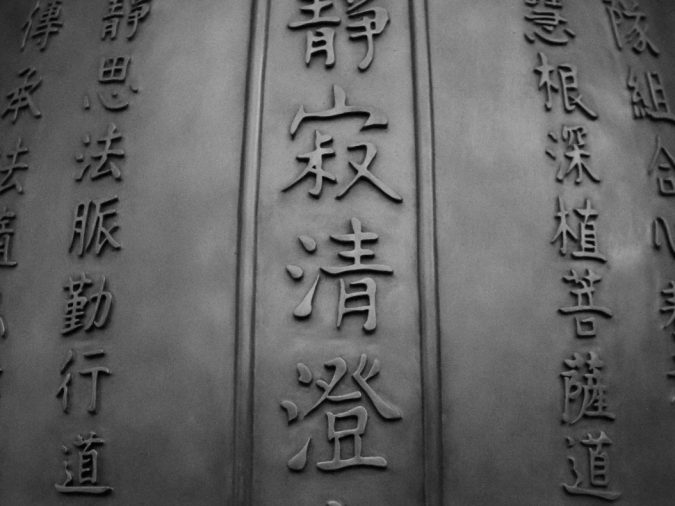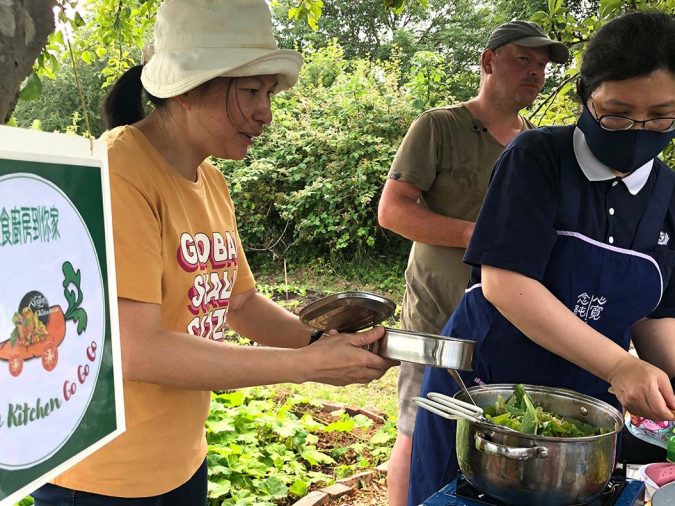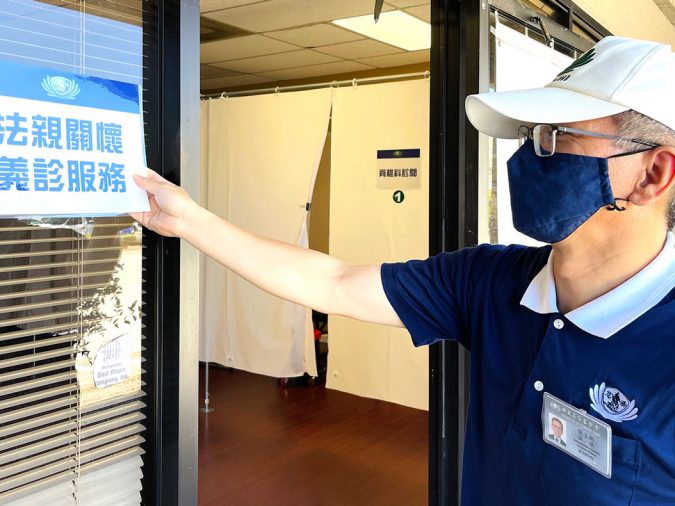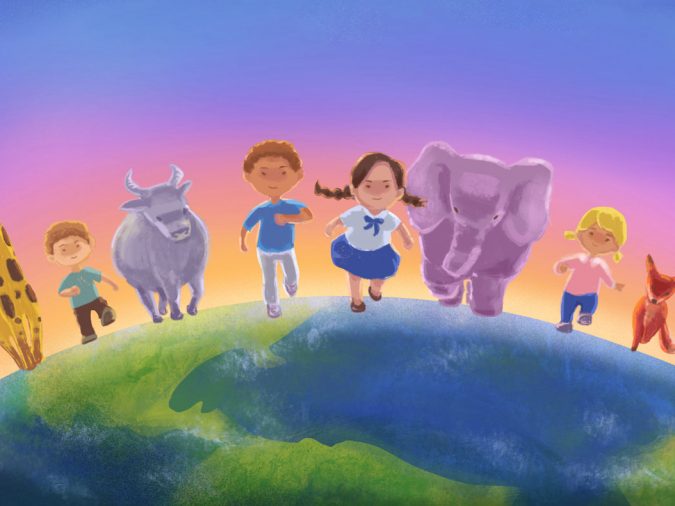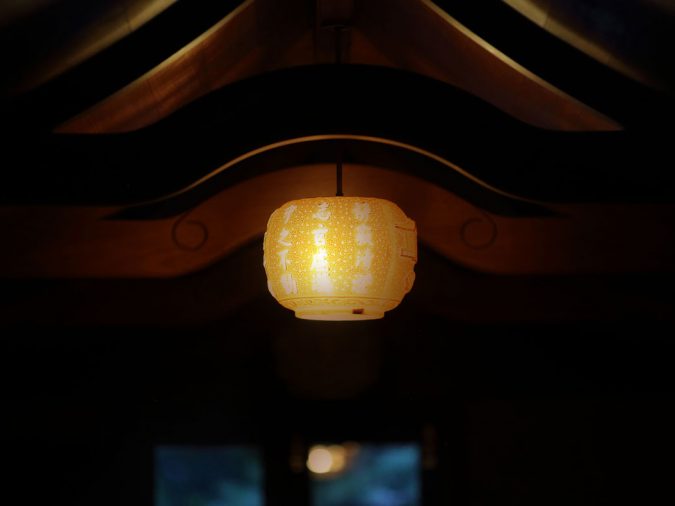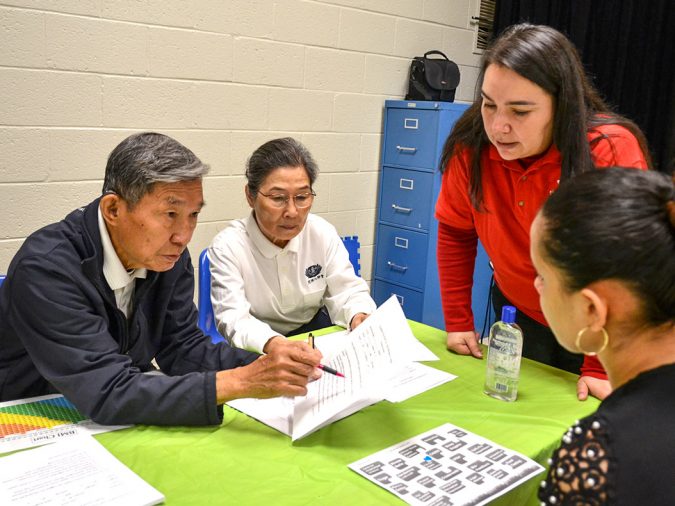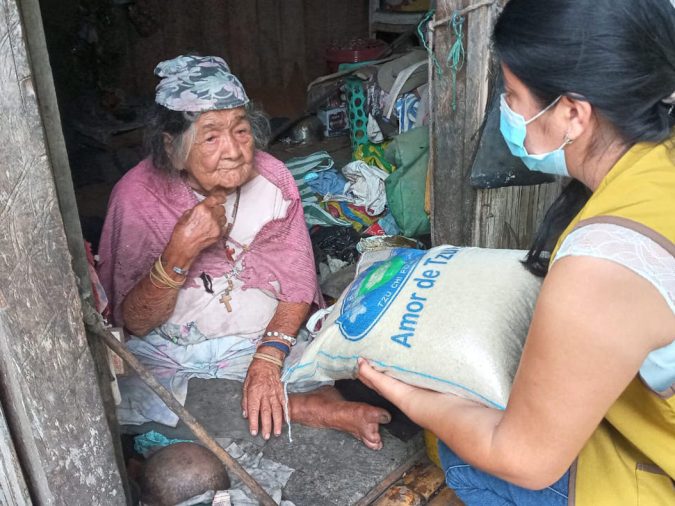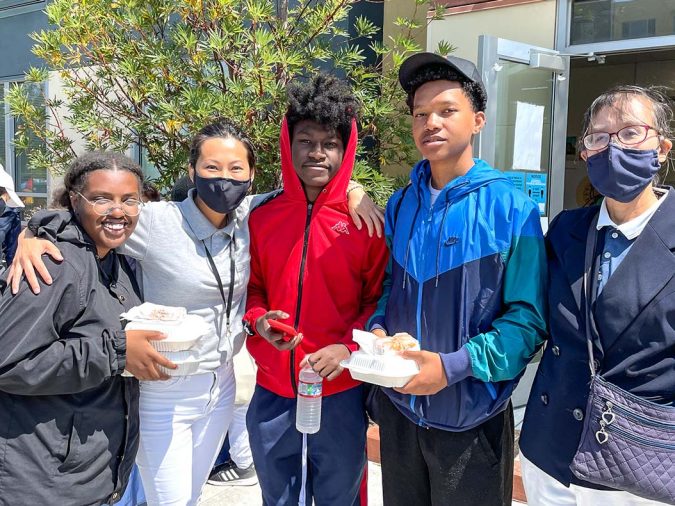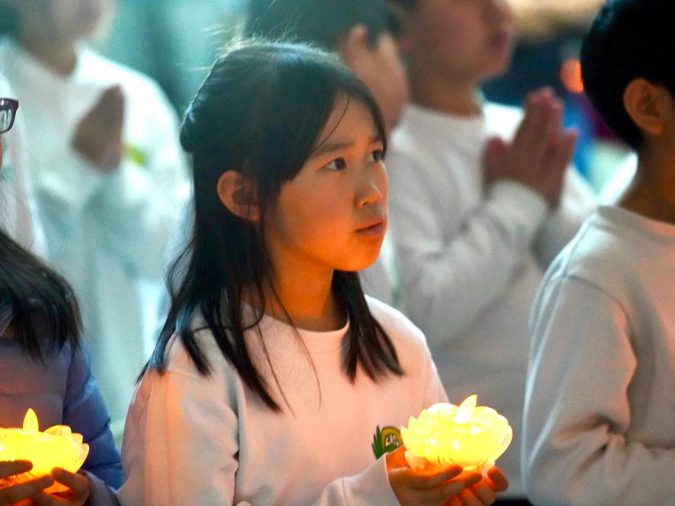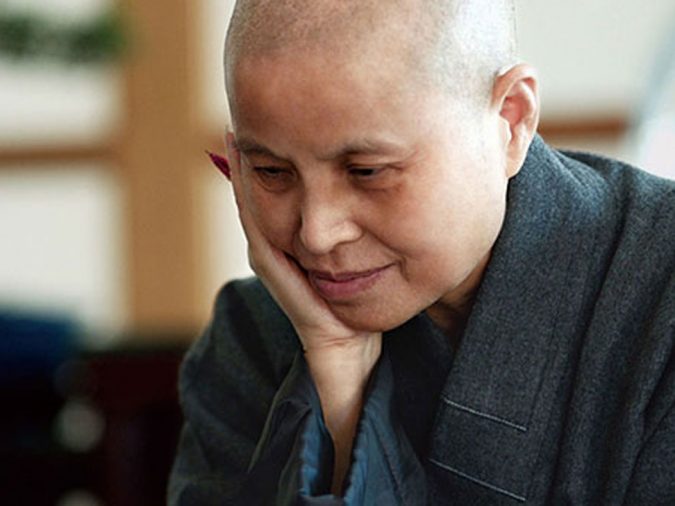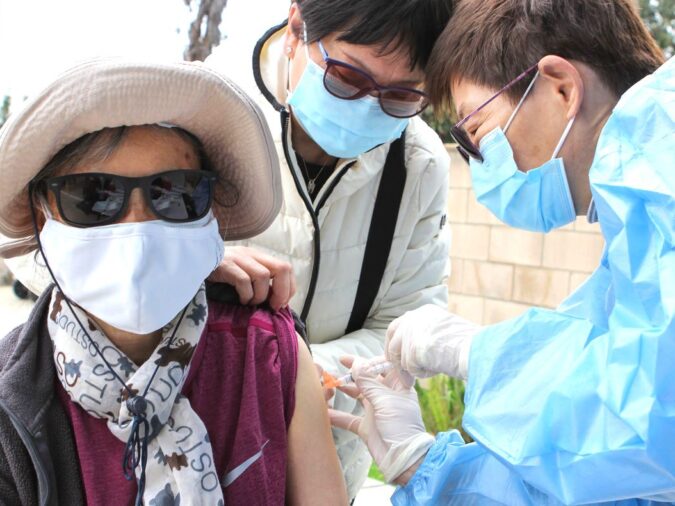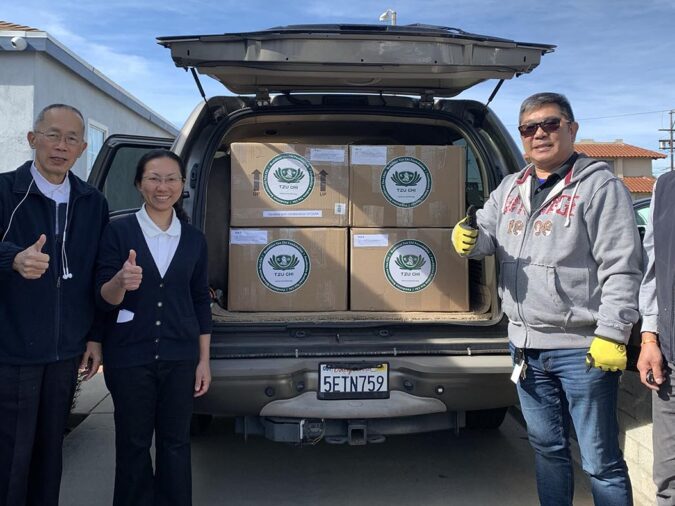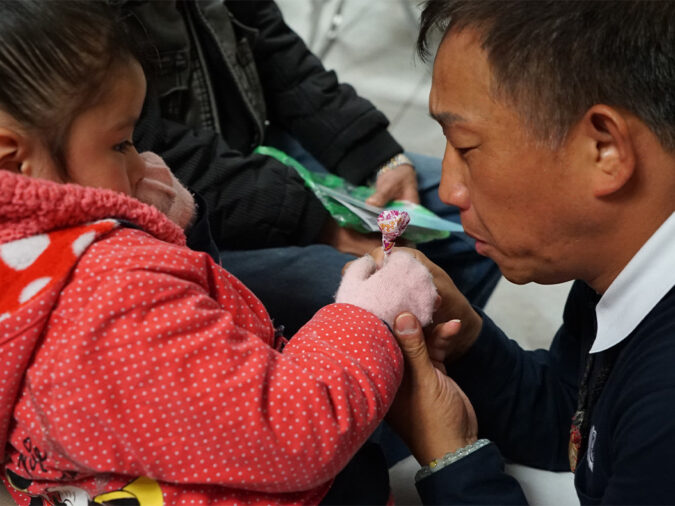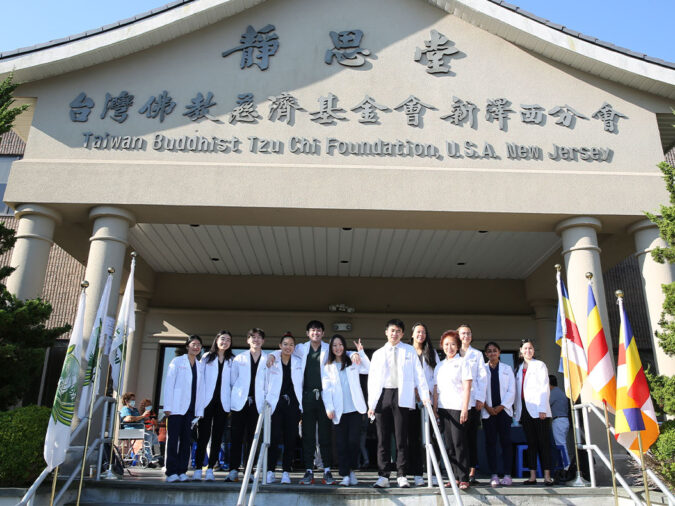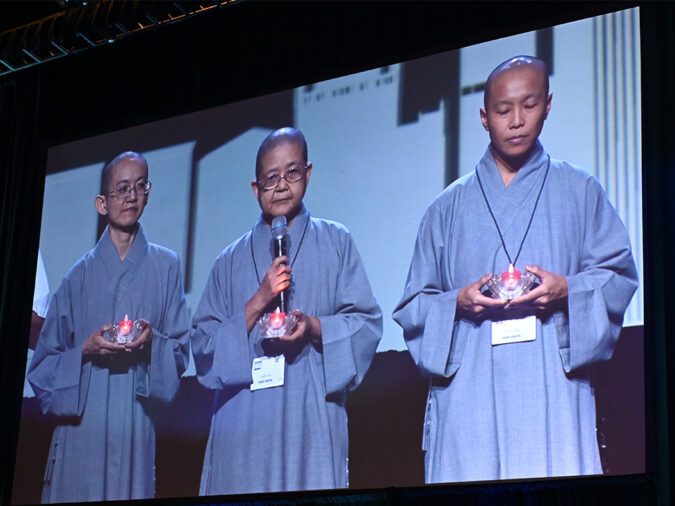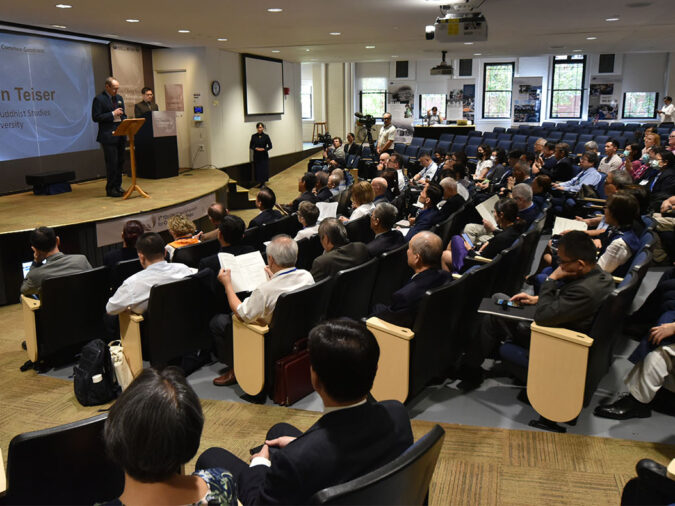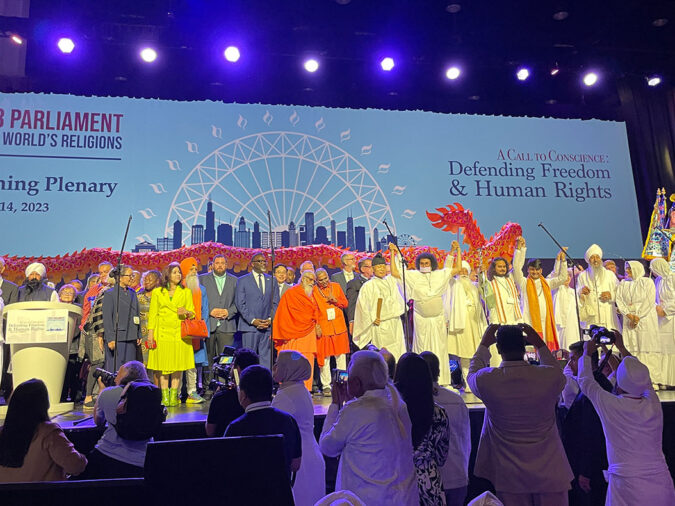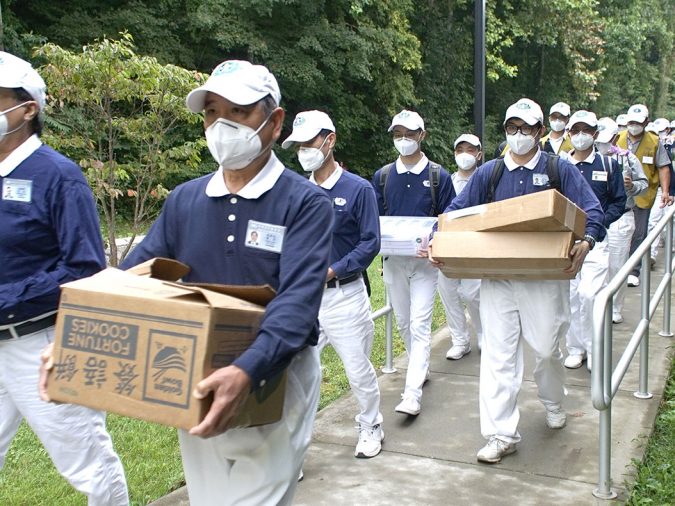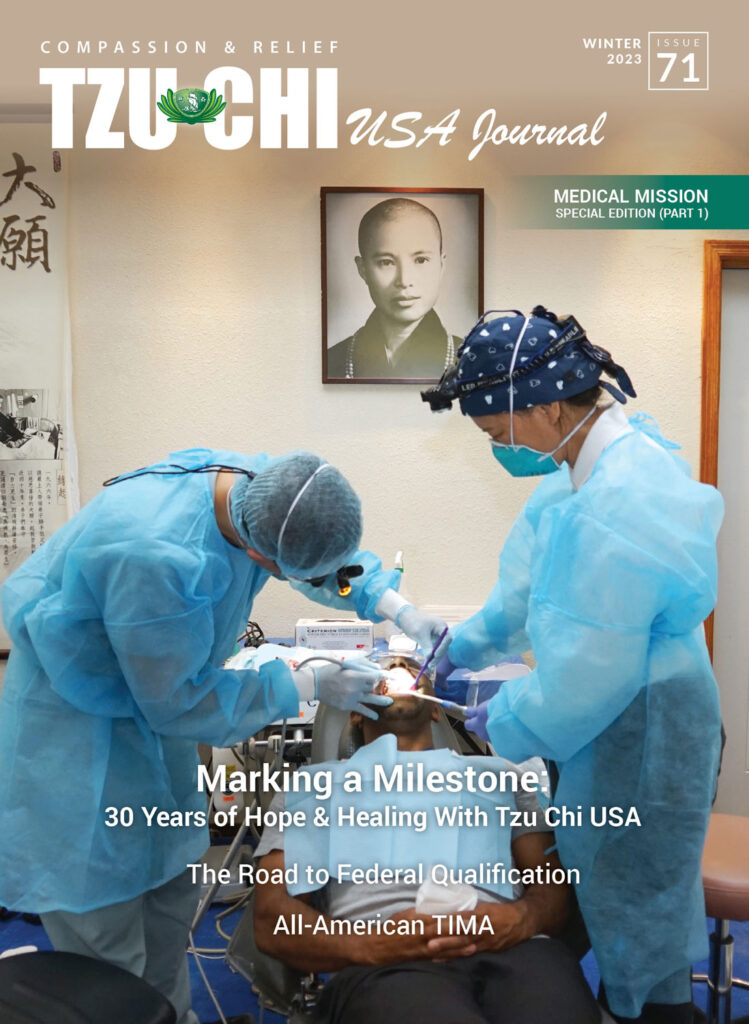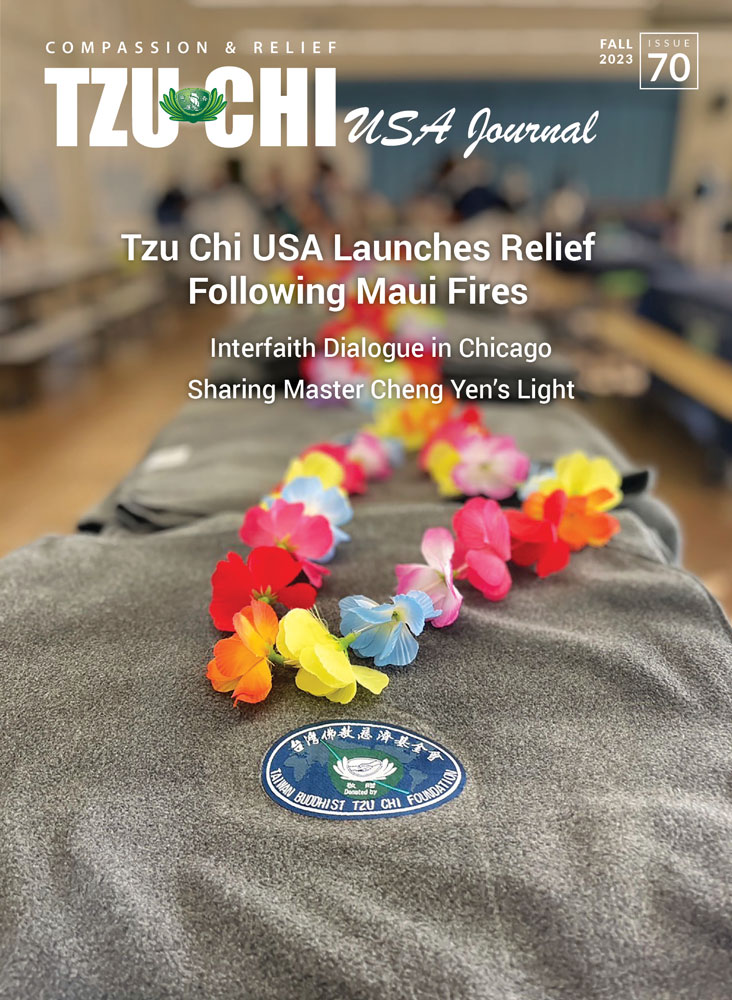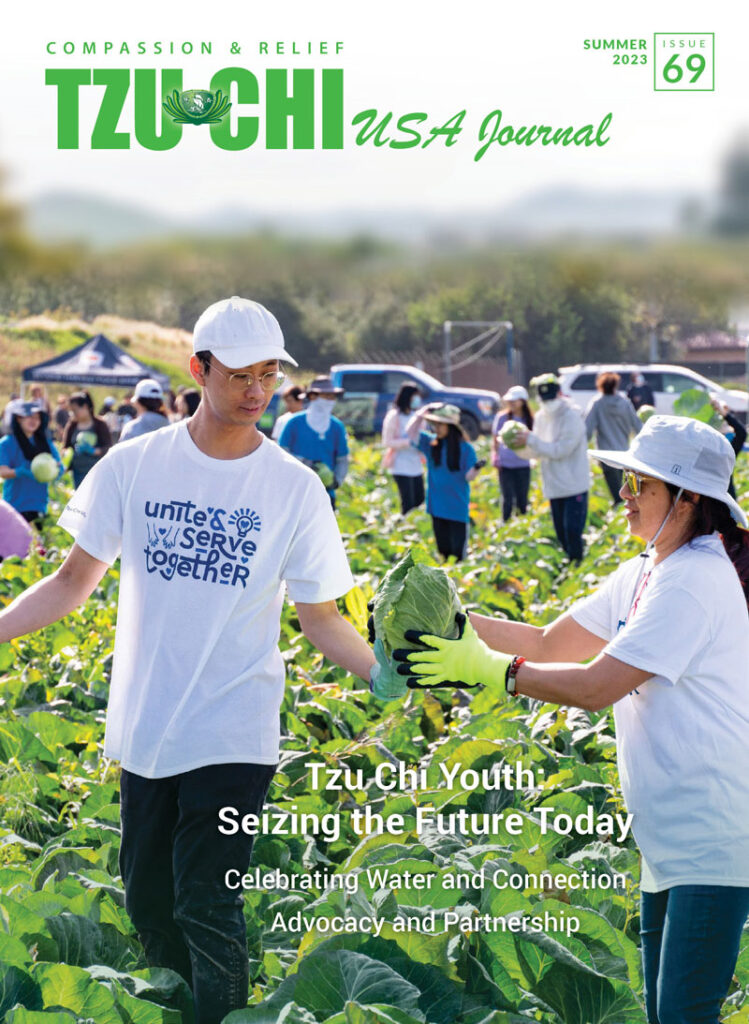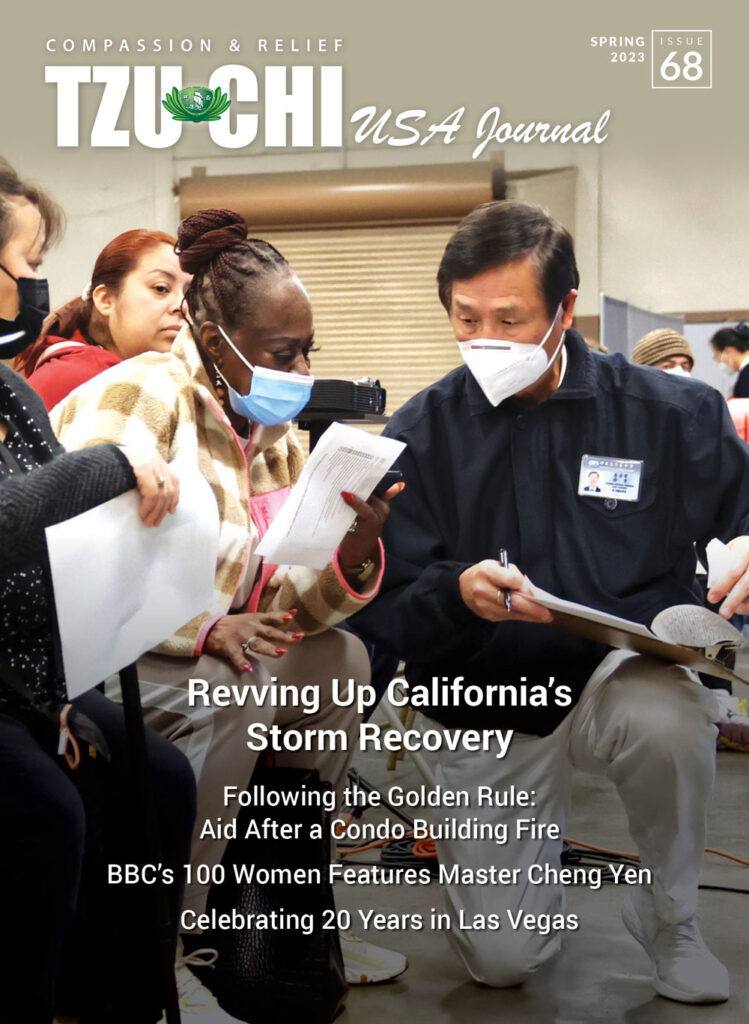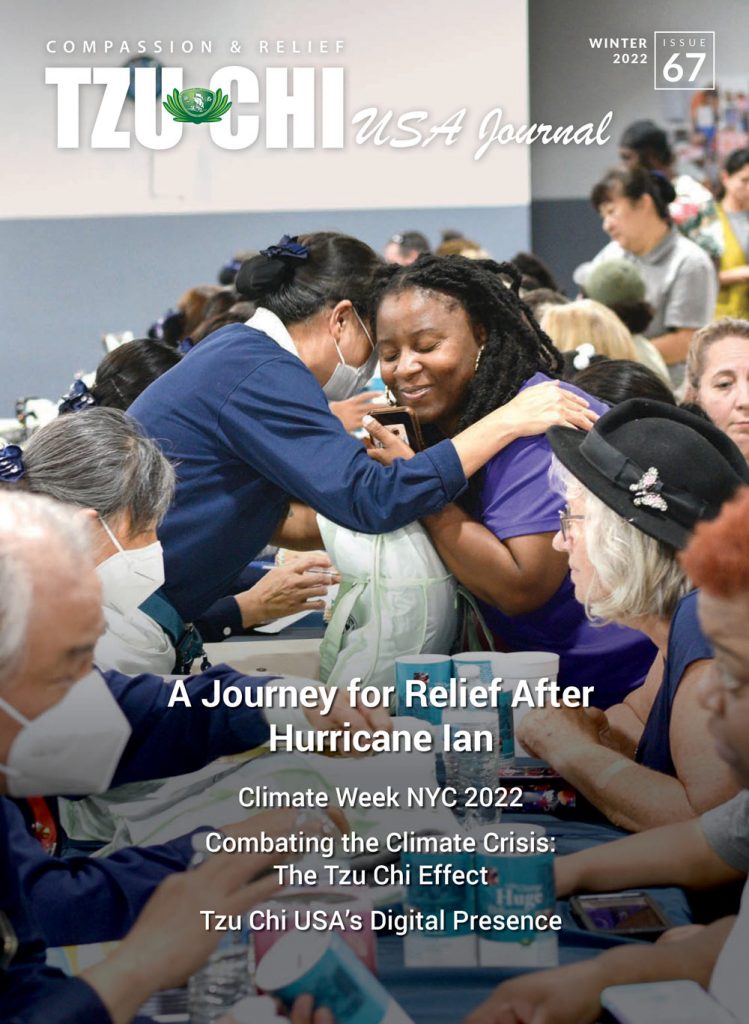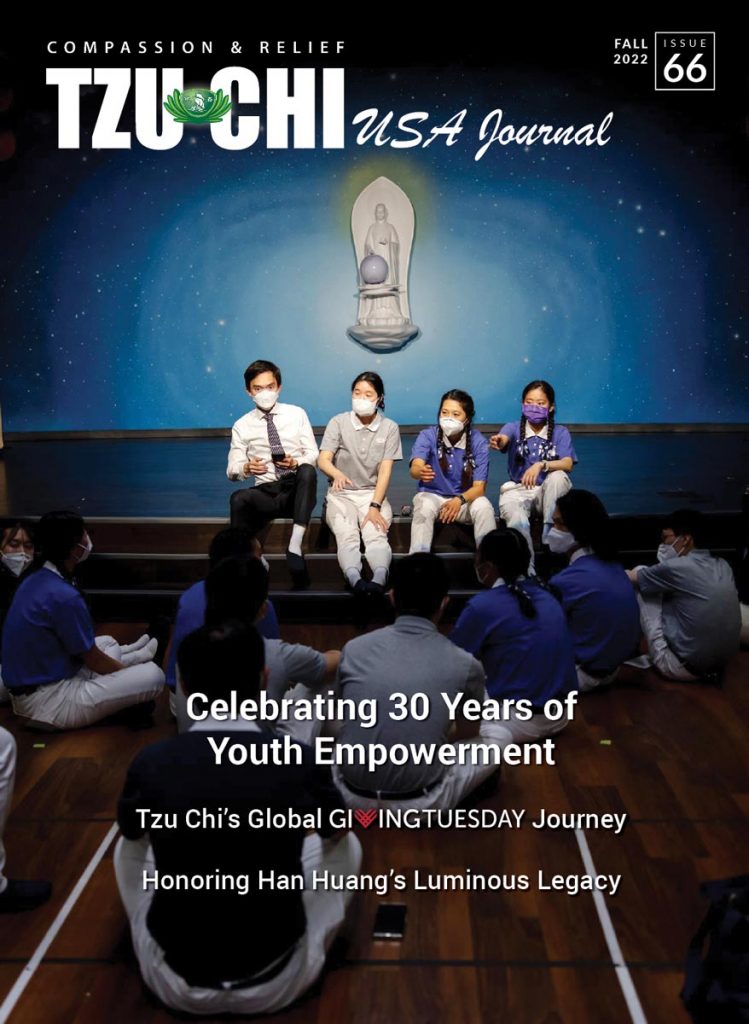Thanking Our Dharma Friends in Prison for a Precious Connection
By Ida Eva Zielinska
Published #62 | Fall 2021 Issue
The whole Tzu Chi USA Journal team greatly values the readership of inmates across the United States. Photo/K.C.
SHARE
Tzu Chi volunteers in the United States are involved in a prison correspondence program, as part of which they exchange letters with inmates nationwide. Concurrently, our friends in prison receive issues of the Tzu Chi USA Journal. If you’re reading this from behind bars, know that our whole team at the Journal values your readership.
We hope our selections of Dharma Master Cheng Yen’s Buddhist teachings and the stories about compassion in action through the activities of Tzu Chi volunteers inspire and uplift your heart and spirit. With this story, we’re also reaching across time and the boundaries of space to extend our best wishes to you.
How the Exchange of Letters Began
Tzu Chi USA’s Chuan Fong Correspondence Program started in 2013, and its name has a special meaning. K.C., the Tzu Chi volunteer behind the start of the program, explains:
In Chinese ‘chuan’ means ‘spread,’ ‘fong’ is ‘wind.’ So, we’re trying to spread the Tzu Chi spirit. We’re spreading Master Cheng Yen’s message. We’re spreading Buddhism in action.
From a Buddhist perspective, everyone deserves compassion and the chance to achieve peace of mind and, ultimately, happiness, or in Buddhist terms, “liberation from suffering.” Additionally, we must also develop compassion towards others. And, in the Tzu Chi path founded by Master Cheng Yen, we ought to put that compassionate, selfless, and benevolent spirit into action in the world.
In fact, the volunteers who answer letters keep this view close to heart, and for them, this is a calling. One shared that, “There are limits on visiting inmates in person, such as distance and schedule, even before the 2020 pandemic prob lems. Writing letters can go beyond these limits.” Another said, “It’s such an honor,” cherishing the opportunity to bring Buddhism to incarcerated individuals.
The correspondence program started thanks to what Buddhists would call an auspicious convergence of causes and conditions. At the time, Tzu Chi USA was making books of Master Cheng Yen’s Jing Si Aphorisms available in hotels. The aphorisms are succinct observations that contain the essence of the Buddha’s teachings and guidance in a form that’s easy to absorb and apply in daily life.
Learning about this initiative, K.C.’s sister said, “You know, Jing Si Aphorisms will work well with inmates.” She was a mentor in the Prisoner Correspondence Course Program offered by the Chuang Yen Monastery of the Buddhist Association of the United States (BAUS) in upstate New York, so had some experience. Around the same time, someone else asked K.C. to put together a prison outreach program, so everything came together naturally.
“After we started this program, we got about 450 on the mailing list that the Chuang Yen Monastery provided us with,” K.C. recounts. And so, he sent a general letter, a book of Jing Si Aphorisms, and a Tzu Chi USA Journal to everyone on the list. And then the letters from inmates began to arrive, and the mailing list grew steadily, reaching around 1,100 in 2019 before it started to drop due to inmate releases around the country to reduce prison crowding.
Touching Hearts
There is no one in the world that I don’t love. There is no one in the world that I don’t trust. There is no one in the world that I cannot forgive.
Jing Si Aphorism by Dharma Master Cheng Yen
Today, Tzu Chi USA Headquarters receives about 30 letters from inmates per month, with over 2,000 received since the beginning of the correspondence program. Answers to letters are sent quarterly to match the publication schedule of the Tzu Chi USA Journal, as our friends in prison often express how much they appreciate receiving a copy.
“I am writing to you today because I have just read Tzu Chi USA Journal Winter 2020 Issue 59. Wow. I am touched by the compassion, love and selflessness of your organization,” “Thank you for all the magazines that you have sent me,” “I just wanted to write to say thank you for your journal and the emotional support.” These are just a few of the words of encouragement that the entire Tzu Chi USA Journal team appreciates in turn.
Appreciation is also due to Brother Andy Kaoh for his vast generosity, as he donates all the books of Jing Si Aphorisms that Tzu Chi volunteers send out, leave in hotels, and more. His selfless gift benefits many.
In the beginning, K.C. alone answered all the letters while admitting that “before 2013, I had no experience in this area,” adding, “I tell you, it’s very stressful.” He was deeply aware of how much the inmates depended on this exchange of letters:
Really, this is one, possibly the only communication they have with the outside world because I would say most of them are abandoned by their families already. Many of them are actually in life imprisonment, so they lose all contact with the outside world. They don’t get any care from anybody. So, it’s a tremendous responsibility.
While sitting down to answer letters may feel a bit daunting at times, K.C. says, “I feel blessed to be able to do it,” and thus he is diligent when he does, taking each letter sincerely to heart as much now as before: “I have to spend several days. Sometimes responding to one letter took me several hours. I mean, we’re so important to them that they write to us, sometimes they share their feelings with us, so I took every letter very seriously.”
As the volume of letters grew, Tzu Chi volunteers learned about the program and some reached out to join. And yet, K.C. is cautious about who can, saying that “it has to be someone who knows Buddhism very well. Because we have these questions coming in. Secondly, they have to know Tzu Chi very well, plus commit to doing it.”
He knows that when a writer feels a deep sense of commitment, it comes through the letters, and they can positively change people’s minds with their words.
Being the Chuan Fong Correspondence Program’s lead, K.C. is also careful about assigning the right volunteer to answer and begin what he hopes will be a long-term exchange. “When I receive the letters, I’ll match the letter’s content with the writer’s background because I want them to be able to connect. Because I want our friend in prison to continue to write to us.”
K.C. continued, saying that “We have a very focused goal. You know, we don’t distract from that. If you want to know more about Buddhism, about Tzu Chi, if you want to change your life, that’s where we can help.” When it comes to how this process of personal transformation can begin, K.C. will introduce core Buddhist teachings in the letters he sends.
In his August 2021 letter, he said, “Buddha told us 2,500 years ago, that we live in an interdependent world, and that we depend on others to achieve health and happiness for ourselves. Our actions affect others, and vice versa.” Powerful words for someone who may be feeling regret about past deeds or harboring resentments about what led them to the choices they made in life, sometimes, simply on the spur of the moment.
One incarcerated Dharma friend wrote, “I think the reason I received a life sentence in prison is because of my past actions. I have been locked up now for almost 23 years and I can tell you I am not the same person now as I was then. In the past I only cared about myself and it really did not matter who I had to hurt to get what I wanted. Now I am paying with my life for my past lifestyle. Is that Karma?”
Reflecting on this, K.C. shared, “Many of these inmates, they believe more in Karma maybe than most of us outside do. Because they are experiencing it.” He then points out how Buddhist teachings can help not just those behind bars but all of us really. In August, his letter highlighted how they can help us find a level of meaning in life that we can rely on or settle our disturbed minds. He wrote about the Buddha’s guidance, how “People should let go of things (without thoughts of gain or loss, good or bad, etc.), while at the same time, practice giving to others.”
He then brought up how the Tzu Chi USA Journal gives concrete examples of this selflessness and work on one’s mind, a way of life the men and women the volunteers are exchanging letters with may have never seen in action.
Really, this is one, possibly the only communication they have with the outside world because I would say most of them are abandoned by their families already. Many of them are actually in life imprisonment, so they lose all contact with the outside world. They don’t get any care from anybody. So, it’s a tremendous responsibility.
But you know, this exchange goes both ways because the volunteers who are in correspondence with friends behind bars are also benefiting and growing, as some shared with us for this article:
It’s given me a different perspective when interacting with other people and has shown me that everyone has a Buddha Heart that just needs to be awakened no matter who they are or what they’ve done in the past. I also learned many lessons through the interactions.
I am so honored to have this opportunity to send a little drop of sweet dew to those who choose a hard way to balance negative karmas. As a matter of fact, we’re stuck in the Wheel of Reincarnations. We’re working hard to balance our own karmas as well.
Their true heart to repent touched me so deeply because no one in this world is perfect but as long as we repent within ourselves, that’s the true salvation.
And, to best describe how the Tzu Chi volunteers corresponding with incarcerated individuals through the program feel, perhaps this writer’s response to our queries expresses it best:
I hope what I do makes them feel someone [is] caring for them and [it] gives them hope to continue the difficult journey.
Embracing a Different Path
What is to be feared is not the long distance to our goals, but rather, not moving forward even one step.
Jing Si Aphorism by Dharma Master Cheng Yen
When one moves beyond cherishing one’s own experience first and expands the heart to embrace the needs and wellbeing of others, it can be life-changing. Tzu Chi volunteers know this well on their path of service. Through reading their letters and issues of the Tzu Chi USA Journal, some inmates feel an impulse to help those in need outside their prison walls. For instance, one friend wrote, “Even though I am sentenced to 40 years in prison is there anything I can do to help others?”
Some find ways to do so inside the prison, and one friend shared: “I try to do my part, eat half of my food and give the other half to people less fortunate than myself.” A few will send a donation as well, which is not easy to do from a correctional facility. “They often donate a small amount of money, but to them, that is a huge amount since their hourly pay rate is just a quarter per hour. Sometimes they donate a whole month’s earnings to show their sincerity,” one volunteer explained.
A few inmates have enclosed stamps as a donation. And one inmate who lost his institutional job and couldn’t donate money anymore sent pieces of jewelry he’d made instead, saying, “Hope you can put these in a charity auction for a few dollars,” which they later were as per his wishes.
The volunteers encourage giving, as it’s at the core of Tzu Chi’s philosophy and roots, K.C. adding, “I always try to encourage. I say this is what Master Cheng Yen says, it’s really for your own good, not really for anybody else’s.’ So, you just donate whatever you feel comfortable with, but do it regularly. Because each time you do this you open up your own compassionate mind. And that’s a training that we all need to keep.”
As we put the front foot down, we lift the back foot up. We let yesterday go and focus on today.
Jing Si Aphorism by Dharma Master Cheng Yen
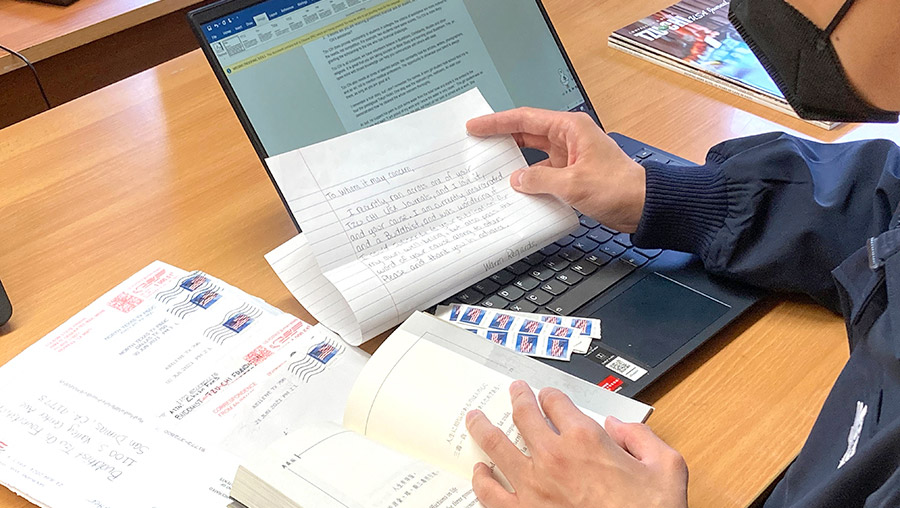
In K.C.’s view, Tzu Chi USA’s Chuan Fong Correspondence Program is so important. The people the volunteers are writing to are especially open to Buddhist teachings, such as the Four Noble Truths about the nature of suffering in life, and the Law of Karma, which Master Cheng Yen has encapsulated, saying, “Karma means that we reap what we sow.” In K.C’s heart, Tzu Chi’s Dharma friends in prison already have a solid foundation.
You don’t have to tell [our Dharma friends] ‘Life is suffering.’ They are suffering, okay? And you don’t have to tell them much about Karma. Once they know Karma, they know the concept, they agree with it. So, they’re really looking for something they can hold on to. And Buddhism gives them that. Our Master’s teachings give them that. They can change their lives. Because if they do start the good things now their future will change. So, I think this is really a very good opportunity for people to accept Buddhism and change their minds.
K.C.
Tzu Chi Volunteer
Founder of Chuan Fong Correspondence Program
And from there, liberation from suffering can follow.
A confused mind suffers agony. An enlightened mind feels at ease.
Jing Si Aphorism by Dharma Master Cheng Yen
SHARE:

